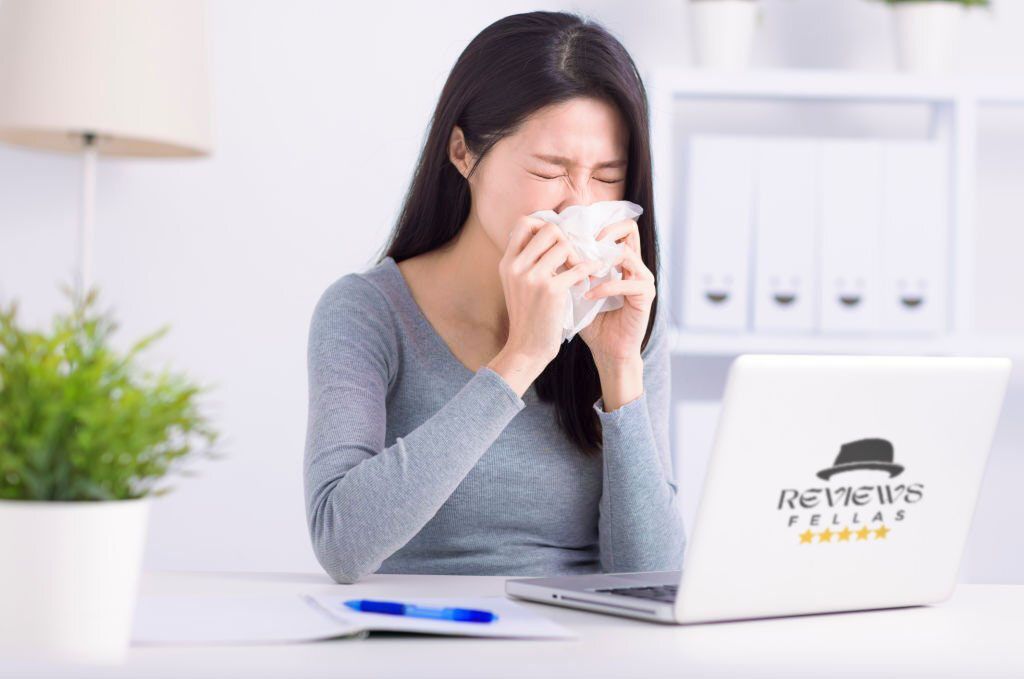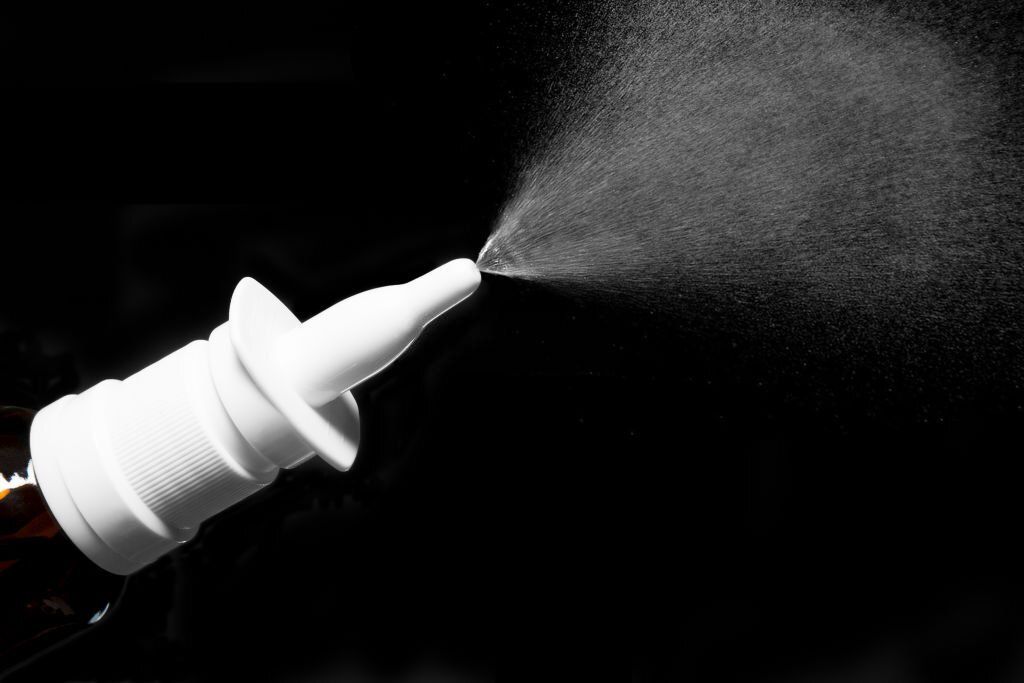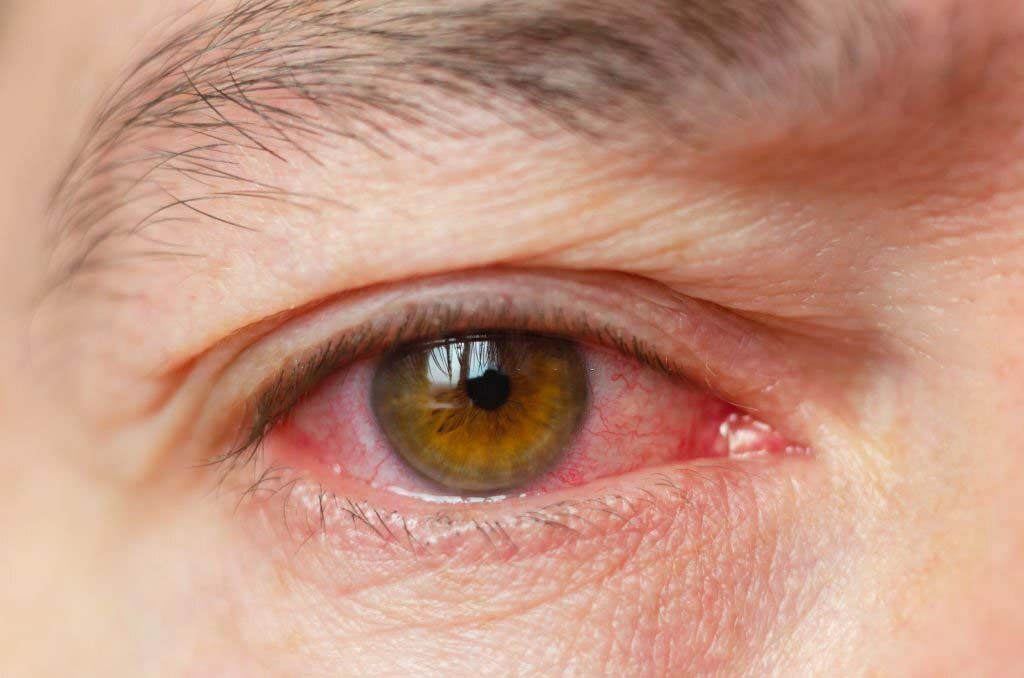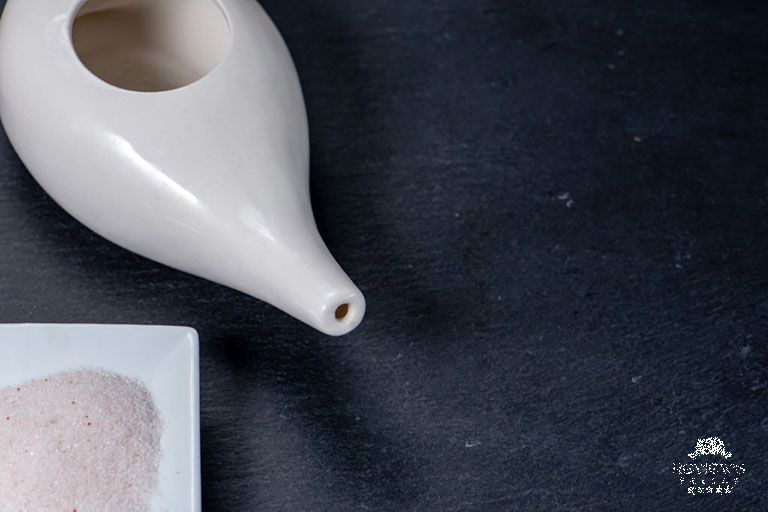This article is reviewed, corrected, and approved by: Julia Weiss CNP| RN | MPH
Allergies are a common health concern that affect millions of people worldwide. From sneezing to skin rashes, allergies can cause significant discomfort and impact our daily lives. However, a common misconception about allergies is that are allergies contagious?.
Allergies are not contagious but many people believe that they can "catch" allergies from someone who is suffering from them. In this informative article, we will dive into the depth of allergy and explore the science behind it.
We will also examine the different types of allergies, their causes, and symptoms, to understand how they affect the body. Furthermore, I will discuss the transmission of allergies and how people can protect themselves from allergy triggers.
Are Allergies Contagious?
There are some allergy symptoms that resemble a common cold, but they are not contagious. Allergies are not contagious, but they can be very irritating. If you never encounter an allergy, you still have the chance to get attacked by many factors that can instantly provoke an allergic reaction.
Therefore, if you have allergy symptoms or are experiencing an allergy attack, that doesn't mean that you are spreading these symptoms to others. Even you can't get an allergy attack from others who are having allergy symptoms or allergy attacks.
Allergic Reactions: What Are They?
A reaction to an allergen occurs when the immune system fights it. A specific allergen triggers the production of immunoglobulin E.
The immune system reacts to seasonal substances, such as insects, pet dander, mold, and more, when it encounters foreign substances. It runs in families.
Immune cells attach to the skin, upper respiratory tract, and mucus membranes in the mouth and gastrointestinal tract. Allergy cells release histamine. The histamine in your body causes allergy symptoms.
Common Allergy Symptoms

Some common allergy symptoms are given below:
- Sneezing
- Clear nasal drainage
- Itchy eyes, ears, throat, or skin
- Pink, watery eyes
- A dry cough caused by nasal drainage or wheezing caused by asthma.
Other typical symptoms of allergies include:
- Shortness of breath and dizziness
- Fever
- Nausea, vomiting, diarrhea
- Severe body aches and fatigue
Typical Allergies
Common allergies include:
Foods
When your body produces an antibody against food, you develop a food allergy. You can get an allergic attack within minutes of eating food. Here are some typical symptoms:
- Pruritus is generalized- Itching everywhere.
- Located pruritus- Itching in one location
- Feeling nauseated.
Products with food allergies
- Wheat.
- Milk.
- Eggs.
- Soy.
- Tree nuts.
- Peanuts.
- Shellfish.
Inhalants
Compounds that we intake through breathing air may sometimes cause inhalant allergy. A perennial allergen affects you all year round, except in winter months, whereas a seasonal allergen affects you only during particular seasons.
Allergies to inhalants include
- Cold.
- Sneezing.
- Itchy eyes.
- Itchy nose.
- Stuffy nose.
- Tears.
Perennial allergens
Pets
Pet allergens occur from the skin and fur of animals.
Dust
Eight legged dust mites can also cause allergy. They live in dust and fibers of mattresses, carpets, and furniture,
Cockroaches.
Cockroaches' poop, eggs, and dead body parts can provoke allergic reactions.
Mustinesses

Like pollen, mold is a tiny fungus that floats in the air. Aspergillus, Cladosporium, and Alternaria are among the most common mold allergens.
Drugs

Some people get allergies after consuming some special drugs. Medications include herbal, otc, and prescription.
Medication allergy symptoms include
- Hives.
- Rash.
- Shortness of breath.
- Itching.
- Swelling.
Treatment Of Allergies

Avoiding allergens is key to treatment. It does not always stop allergic reactions. Among them:
- Nasal sprays
- Digestives
- Vaccines
- Nasal Saline Irrigation
- Allergen Spray
Colds And Allergies: Difference And Similarities

Colds
A cold can cause runny noses, nasal congestion, coughing, sneezing, a low-grade fever, headaches, itchy throats, and sore throats.
After 10 days, a cold generally gets better. After two weeks, you may have an allergy rather than a cold. Symptoms of flu last 1-4 days.
Allergies
An allergen triggers your immune system. A virus isn't an allergen.
Allergies and colds share many symptoms. Congestion, sneezing, and coughing are the symptoms. Allergy symptoms and common cold symptoms are different.
Common Cold Symptoms are
Mucus
You will have clear, watery mucus in allergies. A cold will cause mucus to thicken and discolor.
Eyes
Allergies can cause itchy, watery, or red eyes. When you have a cold, these symptoms don't usually develop.
Duration
Symptoms of allergy and cold can last for weeks or months without treatment. It usually takes ten days for cold symptoms to go away.
Home Remedies for Allergies

Allergies can be a nuisance and often require medication to manage symptoms. But you can find options in your home that can help you to deal with allergies. Let’s check them out.
Saline Nasal Irrigation
This is a treatment that involves rinsing the nasal passages with a saltwater solution. This option is common to make you calm when you get attacked by an allergy, which is a common symptom of hay fever. This helps to wash out allergens and irritations from your nose and helps you to breath normal.
Air Filters
Air filters are used to clear your air. These filters are useful for people who get allergy attacks in their houses or office due to unseen dust.
Probiotics Benefits
Probiotics have some beneficial bacteria that work well in the human body. There are countless evidences to suggest that probiotics may be helpful in reducing symptoms of allergic rhinitis, which is a type of allergic reaction that affects the nose and sinuses.
Honey
Honey is a popular home remedy for allergies, although the scientific evidence supporting its effectiveness is limited. The theory behind using honey to treat allergies is that consuming locally-produced honey will expose the body to small amounts of pollen, which may help to desensitize the immune system over time.
Air Conditioners and Dehumidifiers
These devices are used to reduce humidity levels and prevent mold and mildew growth in indoor environments. By removing moisture from the air, air conditioners and dehumidifiers can help to reduce the number of allergens in the air, which can help to alleviate symptoms of allergies.
Vitamin C
To remove histamine in the human body, Vitamin C works as a medicine. Histamine is responsible for many allergies. The immune system may be strengthened, and inflammation in the body can be decreased by taking supplements of vitamin C.
Other Immune-Boosting Supplements
There are a variety of immune-boosting supplements available on the market that may be helpful for people with allergies. Zarbee's cough and mucus for children is one example of a supplement that is designed to boost the immune system and reduce symptoms of allergies and colds.
How To Prevent Allergies?
Animals should not be petted, hugged, or kissed if you have allergies. Stay them away from your bed or carpet. By vacuuming regularly, you can remove dust mites, pollen, and other allergens.
Covid Vaccine And Allergies
Sometimes vaccines can cause allergies, but it is not something usual. If you think you might have a severe reaction to the COVID-19 vaccine, seek immediate medical attention or call your doctor. Covid vaccine allergies symptoms include:
Covid vaccine allergies symptoms include:
- Difficulty breathing or wheezing
- Allergies sore throat
- A drop in high blood pressure
- Swelling of the tongue or throat, or
- Hives or a generalized rash that includes mucus membranes.
Statistics of Allergies in The USA
Let’s go through some allergy facts:
Frequently Asked Questions (FAQs)
Question 1- Can I Take Antihistamine After Covid Vaccine?
Answer 1: Over-the-counter allergy medications like antihistamines can be taken before and after the COVID-19 vaccine, but all allergy medication and shots should be avoided.
Question 2- How To Stop Sneezing?
Answer 2: Make use of your tongue. Sneezing can be stopped by tickling the roof of your mouth with your tongue. The urge to sneeze may subside after about 5 to 10 seconds. Another tongue method involves pressing your tongue hard against your front teeth until you no longer have the urge to sneeze.
Question 3: Can Allergies Cause Sore Throat?
Answer 3: Yes, allergies can cause a sore throat, among other symptoms. The body uses this to protect itself. Histamines are released into your bloodstream when you are exposed to an allergic trigger.
Final Thoughts
When exposed to allergens, allergies continue. Once you're no longer exposed to allergens, your symptoms should disappear. Pet dander, dust mites, and pollen exposure can cause inhalant allergies that last for several days or longer.
You may have flu and cold during flu season. Allergies don't spread like flu and colds. It's important to avoid substances that cause such problems.


